CFPB $8 late fee cap edges toward reality
Payments Dive
APRIL 17, 2024
Despite an industry-backed lawsuit seeking to stop the Consumer Financial Protection Bureau’s new $8 late fee rule, bank card issuers are bracing for potential implementation.
This site uses cookies to improve your experience. To help us insure we adhere to various privacy regulations, please select your country/region of residence. If you do not select a country, we will assume you are from the United States. Select your Cookie Settings or view our Privacy Policy and Terms of Use.
Cookies and similar technologies are used on this website for proper function of the website, for tracking performance analytics and for marketing purposes. We and some of our third-party providers may use cookie data for various purposes. Please review the cookie settings below and choose your preference.
Used for the proper function of the website
Used for monitoring website traffic and interactions
Cookies and similar technologies are used on this website for proper function of the website, for tracking performance analytics and for marketing purposes. We and some of our third-party providers may use cookie data for various purposes. Please review the cookie settings below and choose your preference.
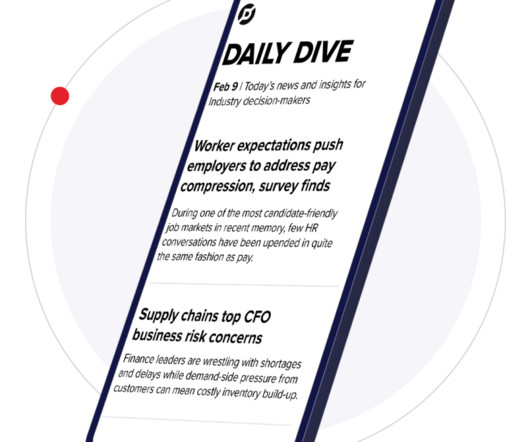
Payments Dive
APRIL 17, 2024
Despite an industry-backed lawsuit seeking to stop the Consumer Financial Protection Bureau’s new $8 late fee rule, bank card issuers are bracing for potential implementation.
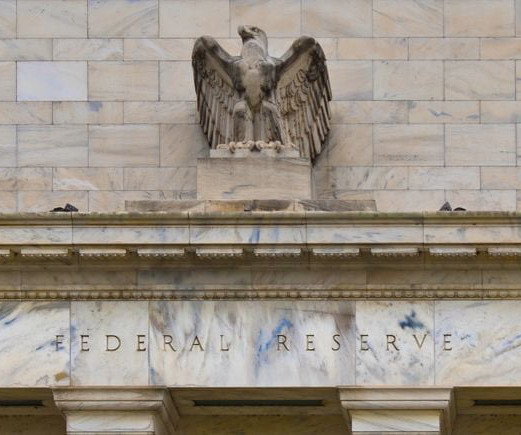
Payments Dive
OCTOBER 25, 2023
The Federal Reserve Board proposed a rule change that would slash the amount card issuers can charge merchants for processing a debit transaction. The proposal also calls for periodic updates to the fee cap in the future.
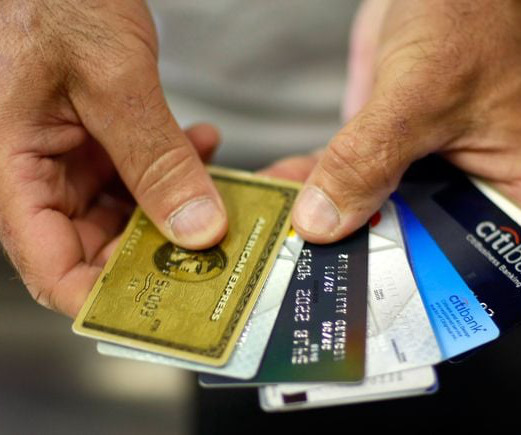
Payments Dive
JULY 6, 2023
senators, the top 10 credit card issuers outlined their late fee practices and warned of potential consequences if fees are capped as the CFPB has proposed. In responses to a group of U.S.

The Payments Association
JUNE 28, 2024
New regulations will cap overdraft fees, drastically reducing them from around $30 to approximately $3, significantly impacting banks' revenue streams. Read more
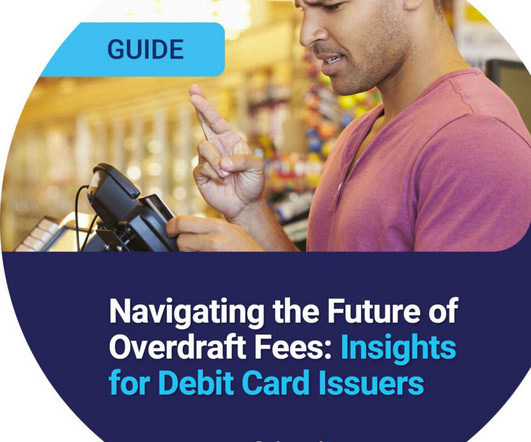
The Payments Association
APRIL 21, 2024
New regulations will cap overdraft fees, drastically reducing them from around $30 to approximately $3, significantly impacting banks' revenue streams. Read more

Payments Dive
JUNE 20, 2024
Senators this week introduced their version of a House bill aimed at derailing the Federal Reserve’s plan to lower the cap on fees that card issuers can charge merchants on debit card transactions.

PYMNTS
FEBRUARY 27, 2019
. “What we’re looking for in the review of the IFR, and one of the things we would have been looking for in the PSR’s market review, was a simplification of card regulation [so as] to deal with all the carve-outs and complexities that are involved in it.”

Payments Dive
JULY 18, 2023
The CEO of the private label card issuer expects a final rule on the CFPB’s proposed credit card late fee cap later this year, and litigation could follow, he said.

Electronic Payments Coalition
FEBRUARY 28, 2024
WASHINGTON, DC — It’s been nearly 15 years since the Durbin Amendment imposed price caps and routing mandates on debit cards, financially burdening small businesses, while corporate mega-stores, like Walmart and Target, have accumulated substantial revenue gains.

PYMNTS
MAY 13, 2019
The proposed credit card interest rate cap legislation , courtesy of Democratic presidential hopeful Senator Bernie Sanders and Rep. Alexandria Ocasio-Cortez is in serious need of an almost half-century-old refresher course in the unintended consequences of price caps on the American consumer. Here’s why.

Payments Source
APRIL 24, 2016
It didn't take long for debit card issuers affected by the Durbin amendment fee caps to cut back or eliminate rewards programs to recoup costs. Issuers now engaged in the increasingly competitive credit card rewards and loyalty environment may soon have to face that same decision.

Finextra
MARCH 5, 2024
The Consumer Financial Protection Bureau (CFPB) finalized a rule today to cut excessive credit card late fees by closing a loophole exploited by large card issuers.

PYMNTS
SEPTEMBER 17, 2020
The way the rewards programs work is that airlines sell miles to banks, and the banks use them as credit card rewards to attract the wealthier customers they want as cardholders. where there are no caps on credit card transaction fees, FT reported. The loyalty programs are especially golden in the U.S.,

Stax
AUGUST 1, 2024
Visa’s surcharge rules around disclosure, compliance, options (brand-level/product-level), notifying acquirers, surcharge cap, etc. It would like to increase interchange fees, but also control how much merchant surcharge can be added to customers’ bills so they don’t get discouraged from using credit cards.

Stax
SEPTEMBER 26, 2024
That said, you can’t just decide and impose credit card surcharges overnight. It requires stringent adherence to regulatory guidelines and card network rules, from surcharge caps to disclosure requirements. Credit card networks like Mastercard and Visa set a universal limit of 4% on these fees.

Stax
DECEMBER 20, 2023
Set rate processing Subscription rate processing TL;DR Interchange fees are not collected by your payment processor or bank; they go directly to the card-issuing banks. Interchange fees vary significantly depending on the card issuer, the issuing bank, type of transaction and/or merchant type. World High Value (USD) 2.00% + $0.10

Stax
DECEMBER 20, 2023
Let’s start with the elephant in the room: are debit card surcharges legal? The short answer is no, it’s not legal to surcharge debit card transactions. Major card issuers, including Visa and Mastercard , expressly forbid surcharging debit card transactions. How much do debit card transactions cost?

PYMNTS
JULY 6, 2020
This month’s Deep Dive examines how the pandemic has spurred greater touchless payment method adoption and how card issuers, networks and other players in the space are responding. . Safety Concerns Encourage Contactless Card Use . One major credit card company launched a new “buy button” capability this year, for example.

Stax
DECEMBER 6, 2023
This additional fee is intended to cover the costs associated with processing credit card payments. Businesses that choose to add surcharges can either charge a fixed flat fee or a percentage of the transaction amount with a cap on the total. One exception is in Colorado where the cap is 2% or the cost of the merchant processing fee.

PYMNTS
SEPTEMBER 8, 2017
But, while debit cards are on the rise, the study shows credit cards’ share fell by two percentage points to 20 percent in 2016 and is set to continue to decline in certain areas. In the EU, interchange fee caps have limited the profitability for card issuers, while banks in the U.K.

Stax
JANUARY 24, 2024
TL;DR A credit card surcharge is an additional fee tacked on to the purchase amount when a customer pays via a credit card. It is added at the point of sale and depends on the total amount of a transaction and the cap set by credit card companies. Hence you must follow the caps strictly.

Stax
JANUARY 24, 2024
TL;DR A credit card surcharge is an additional fee tacked on to the purchase amount when a customer pays via a credit card. It is added at the point of sale and depends on the total amount of a transaction and the cap set by credit card companies. Hence you must follow the caps strictly.

The Payments Association
OCTOBER 4, 2024
Traditional card issuers and networks must adapt or risk obsolescence. Technological disruption and innovation The rapid pace of technological change is both a challenge and an opportunity for the card payment industry. Additionally, regulatory caps on interchange fees in some regions (e.g.,

FICO
MARCH 19, 2018
The potentially worrying delinquency results come at a time when the FCA aims to try and address the issue of persistent credit card debt, putting requirements in place for banks later in 2018. Others have suggested capping the level of interest that a bankcard issuer can charge.

PYMNTS
APRIL 5, 2016
The European Commission recently introduced interchange fee caps for payment cards used in the EU, but those regulations don’t apply to commercial cards, instead allowing individual Member States to decide whether commercial cards should also see the swipe fee limit.

Clearly Payments
FEBRUARY 12, 2024
Interventions such as countries putting caps on interchange fees and mandates for transparent pricing aim to foster competition and protect consumer interests. Interchange fees, a significant source of revenue for Visa and Mastercard, are subject to regulatory oversight.

Electronic Payments Coalition
MARCH 26, 2024
merchants, more than 90 percent of which are small businesses, lowering credit interchange rates and capping those rates into 2030. The agreement will cap the reduced credit interchange rates for five years, providing an unprecedented level of cost certainty long sought by merchants. merchants, comprised largely of small businesses.
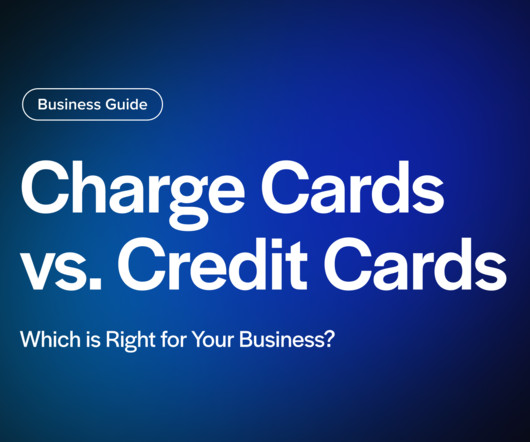
EBizCharge
JULY 10, 2024
There is no option to carry over a balance from month to month with a charge card. While charge cards don’t have a preset spending limit, this doesn’t mean unlimited spending. The charge card issuer will approve purchases based on various factors, such as the cardholder’s payment history, spending habits, and financial resources.
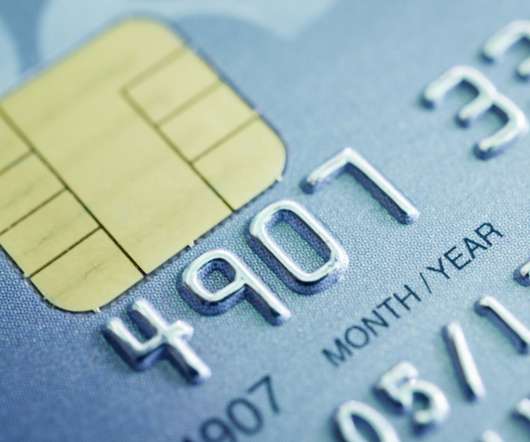
FICO
NOVEMBER 16, 2021
It was the first month with no furlough support and also marked the end of extra benefit payments, plus the increase in the energy cap level and continuing rises in fuel and food prices are all likely to have an impact. These card performance figures are part of the data shared with subscribers of the FICO® Benchmark Reporting Service.

PYMNTS
JULY 6, 2016
From the vantage point of the card companies, as MasterCard has noted online, interchange fees, in effect, are a cost of doing business and factor into innovation as “ the card issuer, the retailer and the acquirer (what the industry calls the retailer’s or merchant’s bank) all pay a small portion of the cost.

PYMNTS
JUNE 26, 2017
PayPal’s does not wish to be seen as a payments ecosystem adversary – but instead as an ecosystem enabler in digital banking and money transfers, leveraging the reach of PayPal online and via mobile pay for the benefit of card issuers and the consumers they serve. But it seems such a bidding war is not to be. Stay cool.

PYMNTS
APRIL 11, 2016
Previous research on this same topic suggested a move towards single-use and virtual cards as a key factor behind changing commercial card trends across the continent.

Stax
JANUARY 31, 2024
Interchange rates are the fees charged by credit card networks (like Visa, Mastercard, American Express, and Discover) to facilitate card transactions between merchants and banks. The card issuers periodically update their interchange rates using the following factors.

Cardfellow
SEPTEMBER 30, 2023
You may remember Senator Durbin’s name as the senator behind the Durbin Amendment , the bill that is responsible for regulated interchange on debit cards issued by large banks and permitted minimum charges on credit cards. Now, Senator Durbin hopes to take on credit card interchange fees.

Stax
APRIL 4, 2024
Moreover, credit cards often provide other benefits like cashback and reward points, which are worth more than the surcharge fee. That’s why many buyers still prefer paying through credit cards despite the additional costs. Are Credit Card Surcharges Legal? In 2005, a group of U.S.-based

PYMNTS
MAY 10, 2016
“The pie for card issuers in Europe is significant. Cash is increasingly being displaced by cards and the pie for cards is growing,” commented Richetta during the conversation. Why that’s music to the issuers’ ears potentially is related to the cap on interchange fees for credit and debit products.

Cardfellow
FEBRUARY 27, 2025
The Durbin Amendment and PIN Debit Routing In the processing world, the Durbin Amendment to the Dodd Frank Wall Street Reform and Consumer Protection Act (commonly just called the Durbin Amendment) gets the most attention for its cap on debit interchange fees.

Fintech Labs Insights
DECEMBER 23, 2015
Since credit card issuers were required to increase their prime rate by the same amount, the company is not concerned it will push away borrowers. The market cap is at $4.32 Yesterday peer-to-peer lending platform, Lending Club [NYSE: LC], offered one answer. The company went public in December 2014.

Stax
MARCH 14, 2024
ACH payments take up to three days to process and cost around 1% of the transaction with a $10 cap. Credit cards/B2B credit cards Credit cards are the staple of payments, but not every B2B business accepts them. Thus, it’s more secure. It’s also cost-effective.

Fintech Labs Insights
JANUARY 24, 2025
This constantly updated article tracks the biggest and most important new products released worldwide by financial technology companies, along with banks, credit unions, investment advisors, insurance companies, credit card issuers and payment providers. Well also link to important demos, podcasts and YouTube videos.

PYMNTS
DECEMBER 27, 2018
Contactless cards are a comparative rarity — most issuers don’t offer them and so, not surprisingly, most consumers don’t often use them. In November, Chase , the largest card issuer in the U.S., announced it’s rolling out tap-to-pay functionality across its Chase Visa card portfolio.
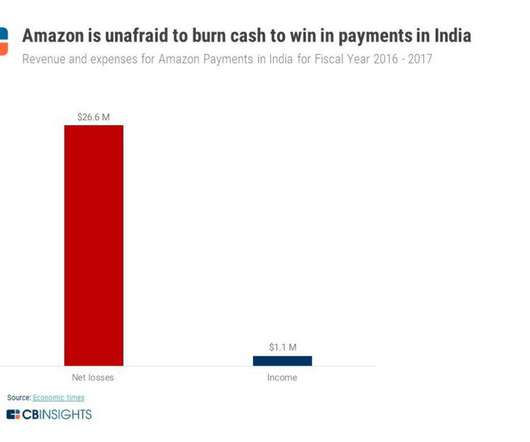
CB Insights
DECEMBER 4, 2019
In December 2017, Amazon’s Alexa Fund participated in a $16M Series A to Greenlight Financial, an alternative debit card issuer aimed at young consumers. With the card, parents can manage spending limits and allocate funds for their children through a mobile app. in 2017 and 2.6%
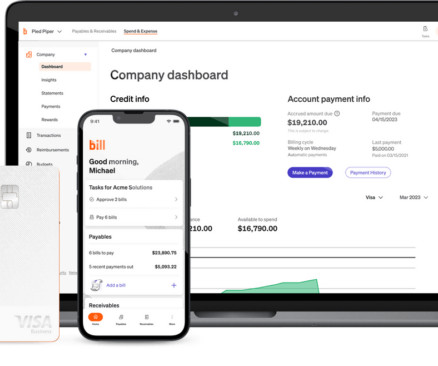
Fintech Labs Insights
OCTOBER 1, 2024
dollars) Definition : Charge cards require the balance to be paid in full each month; credit cards allow the balance to be rolled over, often at a relatively high interest rate). Profiles: Challenger SMB Charge Card Issuers 1. Funding includes both equity and debt amounts (millions of U.S.
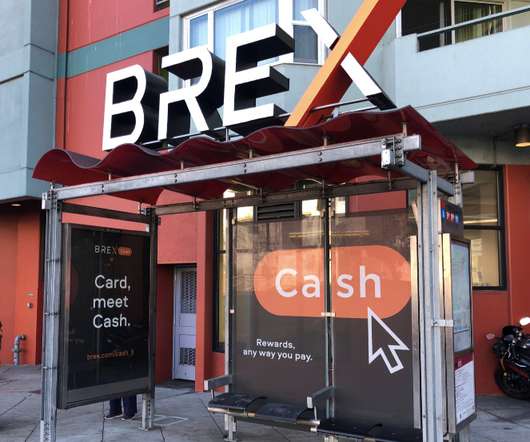
Fintech Labs Insights
DECEMBER 1, 2021
Definition : Charge cards require the balance to be paid in full each month; credit cards allow the balance to be rolled over, often at a relatively high interest rate). Profiles: Challenger SMB Charge Card Issuers. Market cap: $3.5B ( NASDAQ:EXFY) – Raised $301M ($263 in past 12 months via IPO) ( Crunchbase ).
Expert insights. Personalized for you.
We have resent the email to
Are you sure you want to cancel your subscriptions?


Let's personalize your content